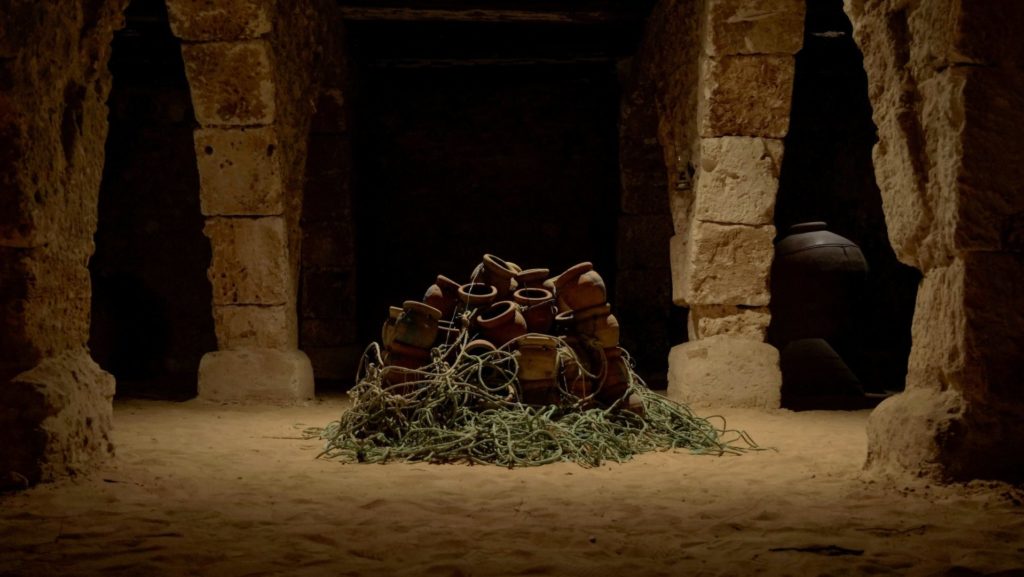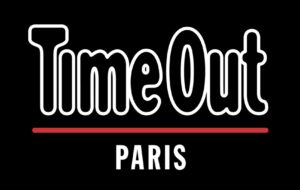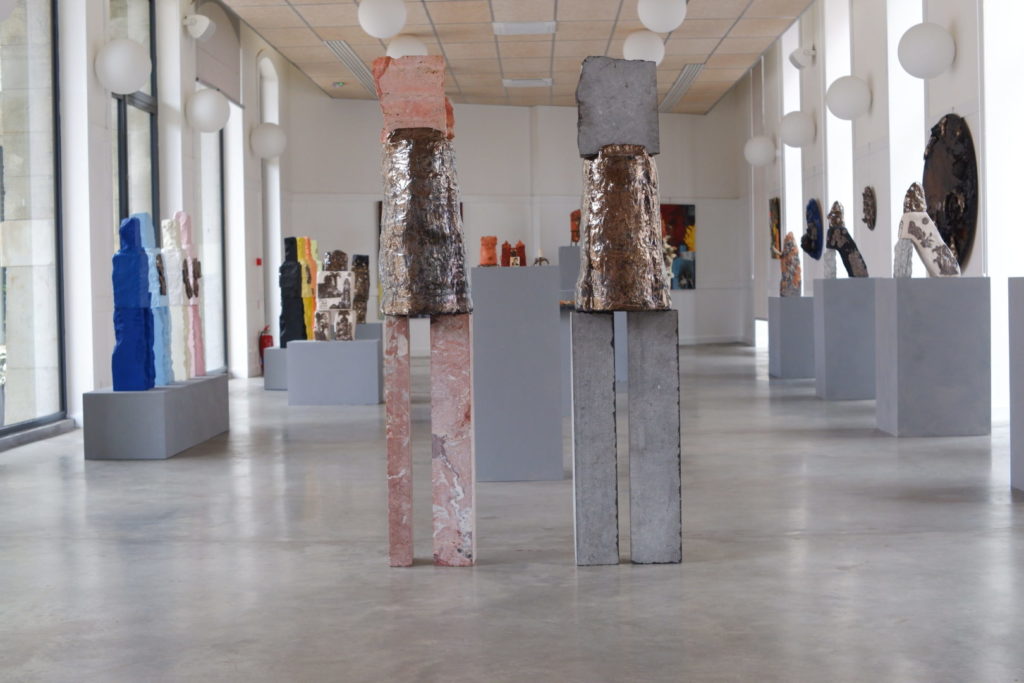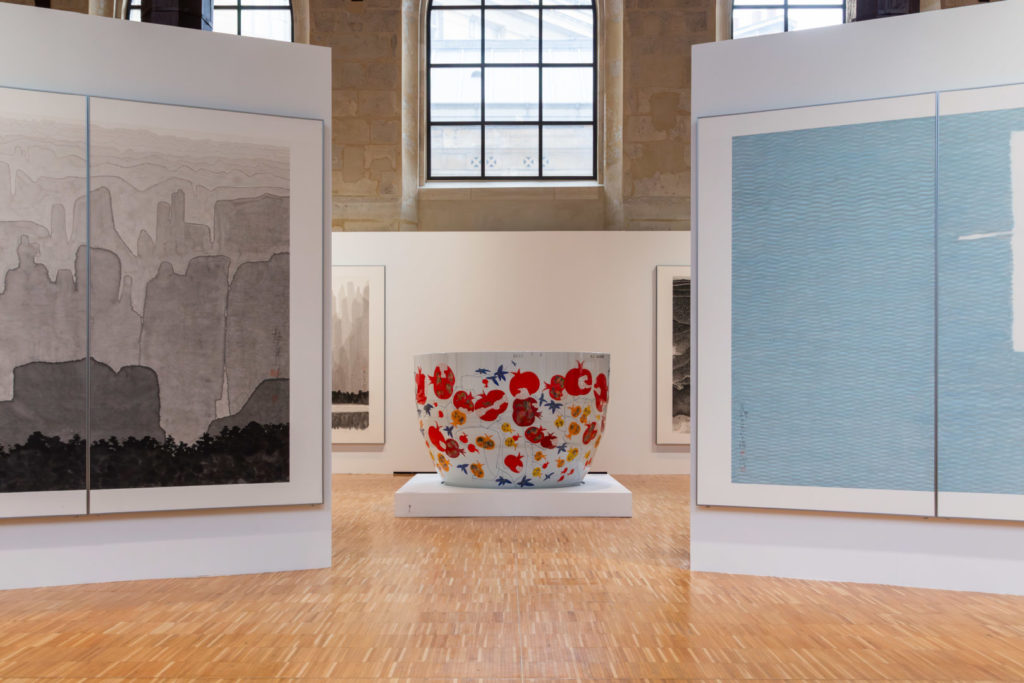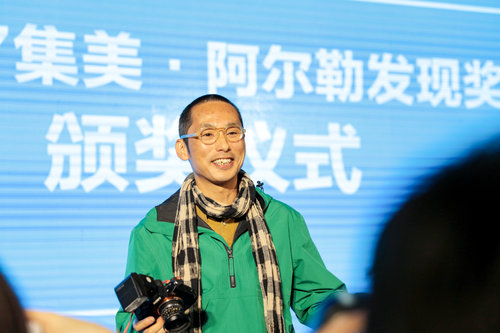In recent years there has been a revival, among the second and third generation of young French artists of North African Jewish origin, of their relationship with their history, with a movement back to Tunisia, Morocco and Algeria, the assertion of an attachment to these places, sometimes the claim of an “Arab Jewish identity”. The Jewish population of these countries, which numbered more than 500,000 in the 1940s, has shrunk to less than 5,000 today. Yet traces of the presence of this millennia-old community remain, particularly in intangible ways, in the music, cuisine and culture of the country. France is now home to the biggest Tunisian Jewish diaspora and one of the biggest North African Jewish diasporas.
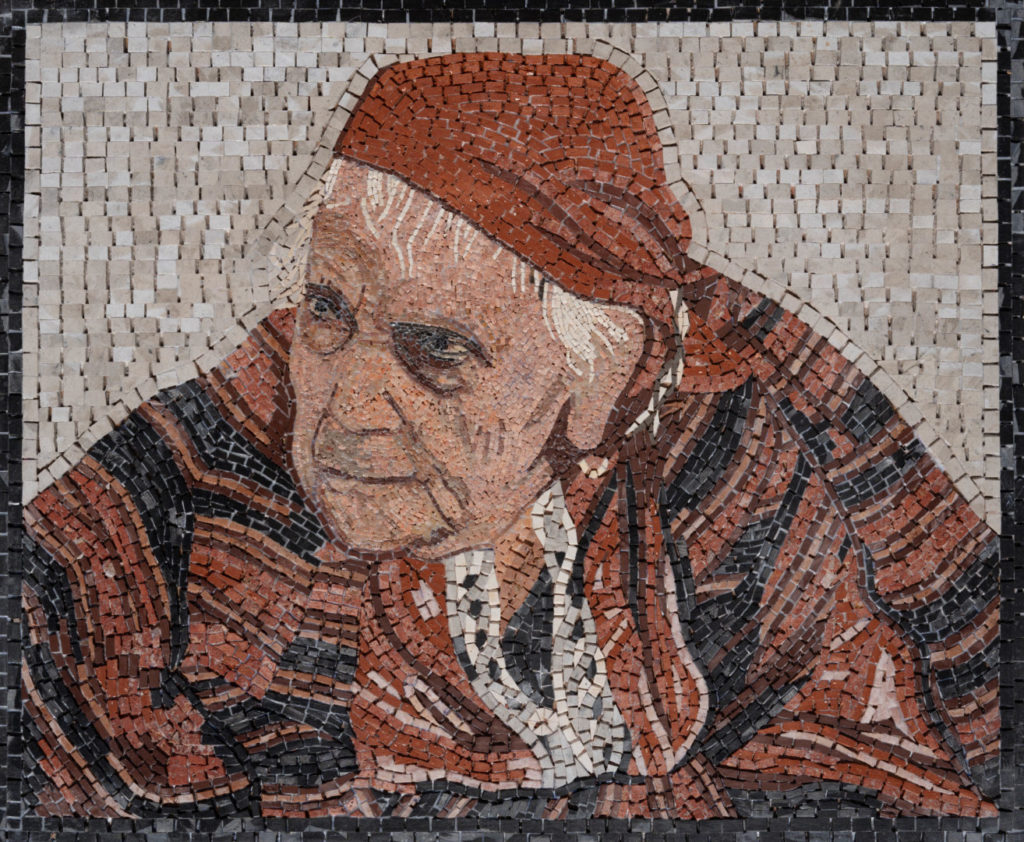
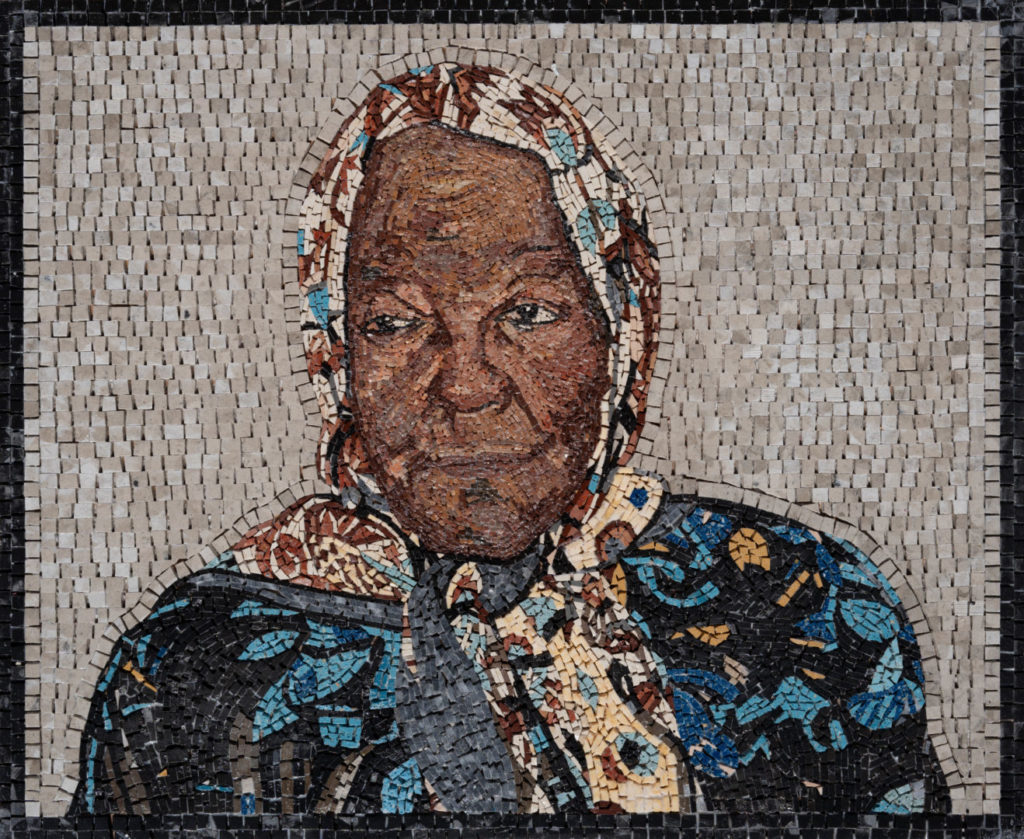
Rafram Chaddad, who was born in Djerba to one of the oldest families from Hara Sghira (the “small Jewish quarter”) and grew up in Jerusalem, returned to Tunisia nine years ago. He has developed there a body of work on the memory, the almost invisible presence of the country’s ancient Jewish history — one of the oldest communities in the world.
Autobiographical details and anecdotes come face to face with places that have hardly kept any evidence of them. The very form of Rafram’s works is evanescent.
He takes over public places (a hammam, a fish market, an abandoned synagogue, a sand desert) for the duration of a performance. His installations and sculptures require few resources and thrive on the networks of relationships they establish.
Food, insofar as it bears the deepest echo of origins and brings people together for the duration of a meal, plays an important role in Rafram’s work (and his book combines works of art, public space interventions and recipes).
This evening, based on the artist’s book The Seven Good Years by Rafram Chaddad, the sum total of his years of artistic work after his return to Tunisia, invites us to revive the memory of the places we left behind, that continue to exist in the evocation of exiled generations, and whose remaining traces are unfolding in our imaginations today.
It is hosted at the Book Bar of Hotel Grand Amour, near the former neighborhood of Jewish immigrants from Tunisia in the 50s and 60s — a still multicultural area where Turks, Kurds, Indians and Pakistanis now cohabit.
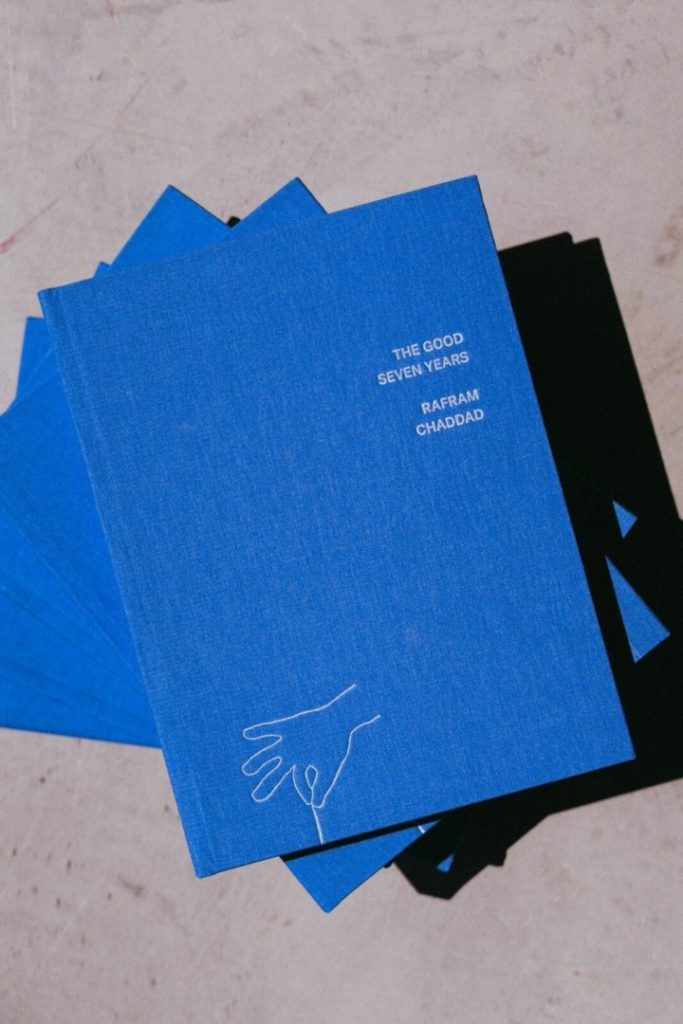
Cover of "The Good Seven Years" of Rafram Chaddad, self-published in 2023
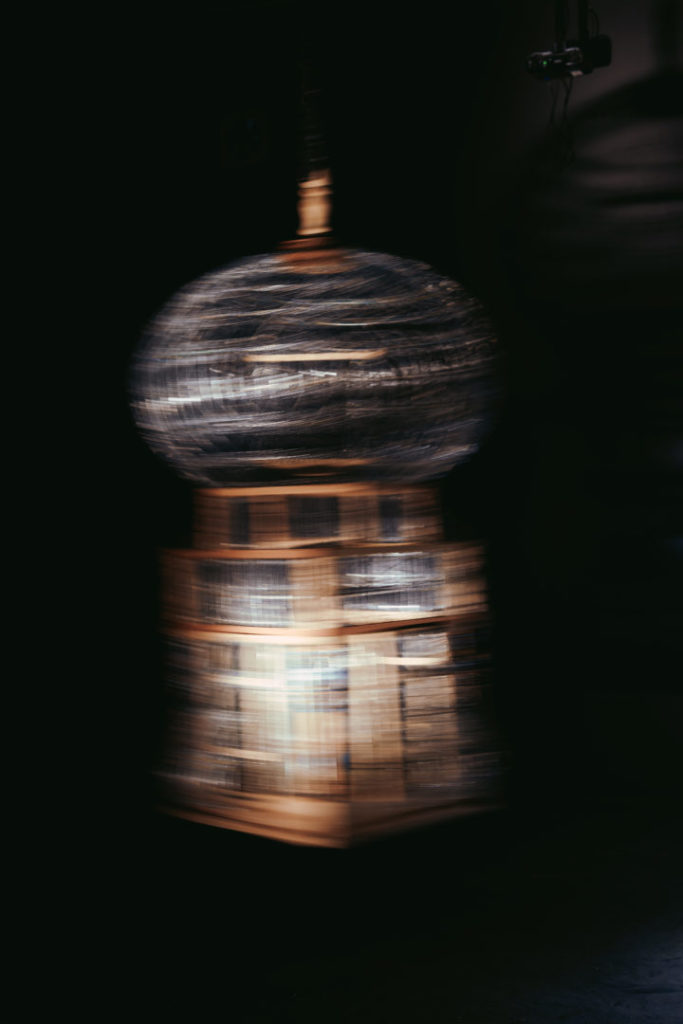
Rafram Chaddad, "Bourgel", 2023, Iron and wood bird cage, soil, plants, broken pieces of a tomb, sound installation, 185 cm x 102 cm
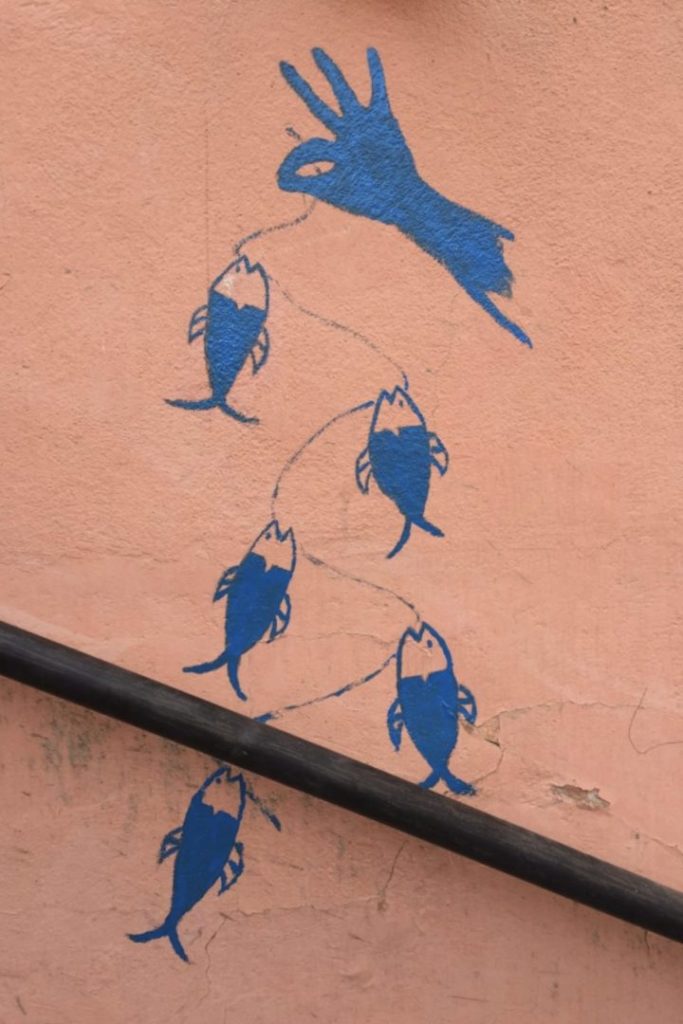
Rafram Chaddad, "Fish In, Fish Out", 2006-ongoing, wall painting
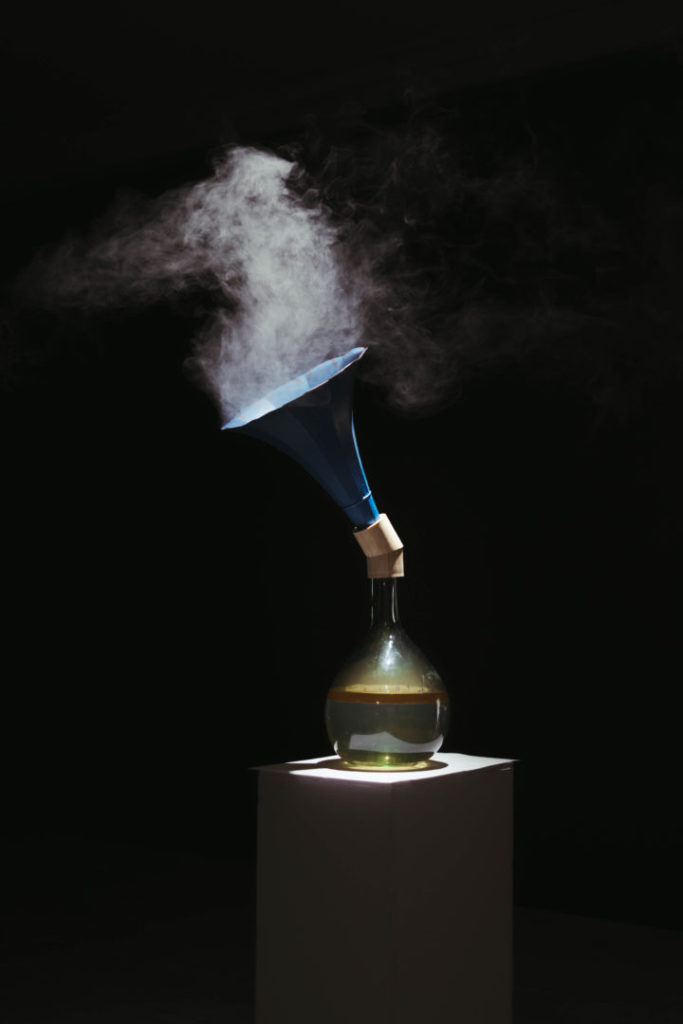
Rafram Chaddad, "Olive Smoke", 2023, Glass bottle, water, olive oil, cotton, gramophone horn, smoke machine
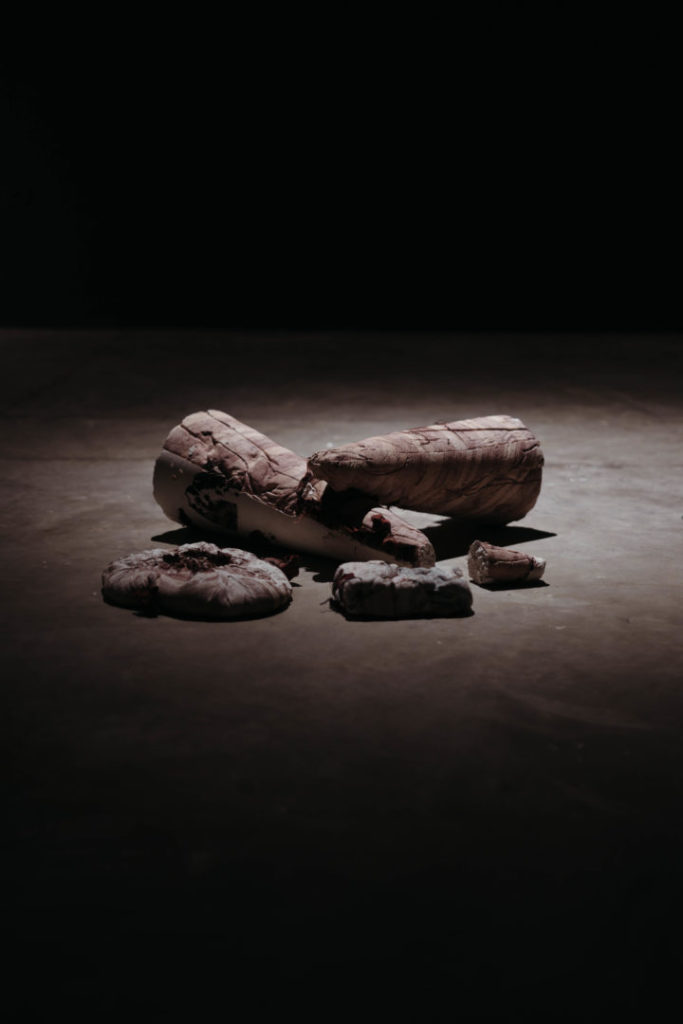
Rafram Chaddad, "Shefshari", 2023, plaster, cotton clove


Cover of "The Good Seven Years" of Rafram Chaddad, self-published in 2023

Rafram Chaddad, "Bourgel", 2023, Iron and wood bird cage, soil, plants, broken pieces of a tomb, sound installation, 185 cm x 102 cm

Rafram Chaddad, "Fish In, Fish Out", 2006-ongoing, wall painting

Rafram Chaddad, "Olive Smoke", 2023, Glass bottle, water, olive oil, cotton, gramophone horn, smoke machine

Rafram Chaddad, "Shefshari", 2023, plaster, cotton clove

Program of the evening

From 6 to 7pm, the artist presented his book during a discussion with Joseph Hirsch (programmer at the auditorium of the Jewish Museum of Art and History in Paris) and Victoria Jonathan (curator and founder of the cultural agency Doors 门艺).
A book signing by the artist was organized after the conversation, during which the last 30 copies of the book were sold. The book signature will be accompanied by boukha, boutargue Memmi, fricassées from chez René et Gabin, Kaia olive oil and pastries from Maison Farida.
Johann Barichasse, ‘cheb cuisinier’ in Marseille (Les Rigoles), who fuses Judeo-Arabic (his parents are of Moroccan and Algerian origin) and French culinary traditions, is in residence at the Book Bar restaurant for an evening, with a delicious menu that celebrates the métissage and economy of means of Tunisian cuisine.
Mediterranean DJ and producer Sharouh (Sarah Perez) invites electro to blend with music from the Maghreb, the Middle East, Greece and Turkey. Her EP, just released in September, Ya Hasra (Akuphone), resurrects four jewels of Jewish-Tunisian music, sung by legends Habiba Msika, Louisa Tounsia, Raoul Journo and El Kahlaoui Tounsi, accompanied by Sharouh’s unique reinterpretations.
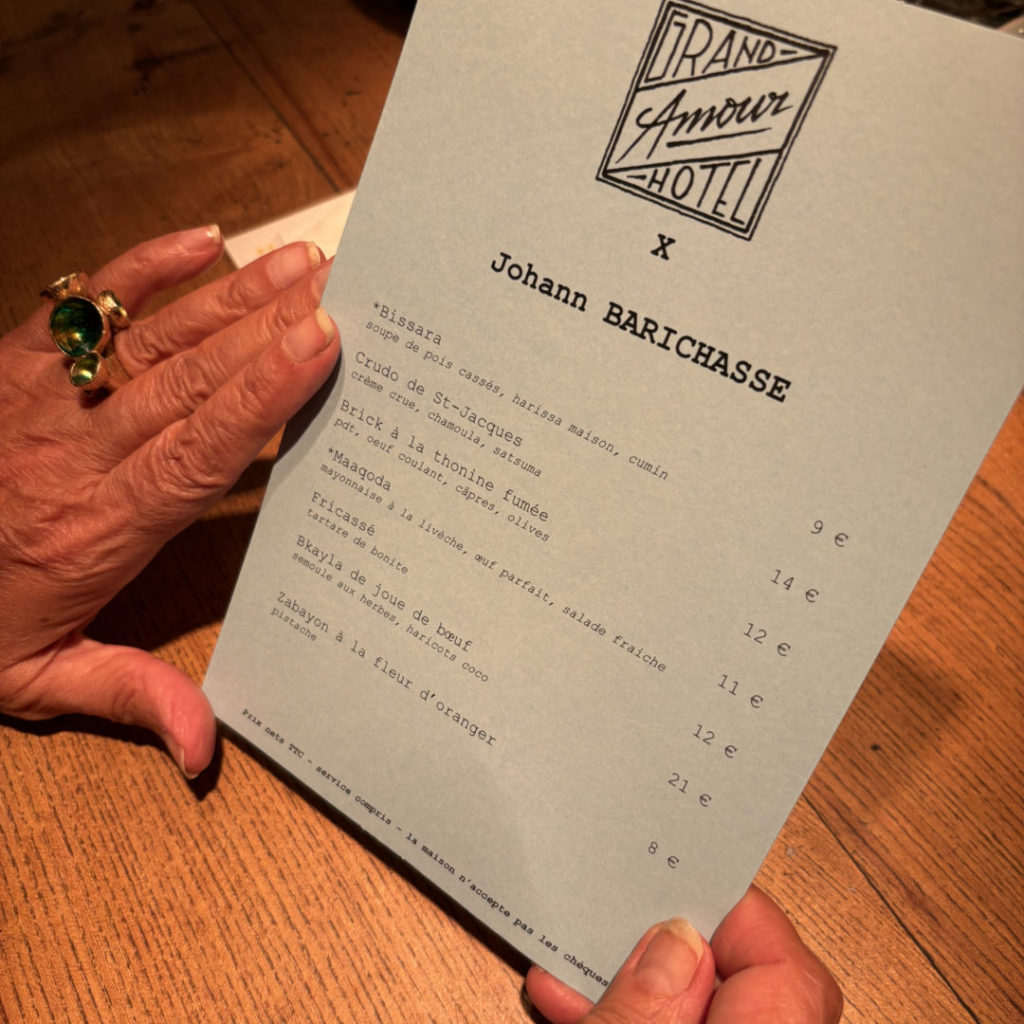
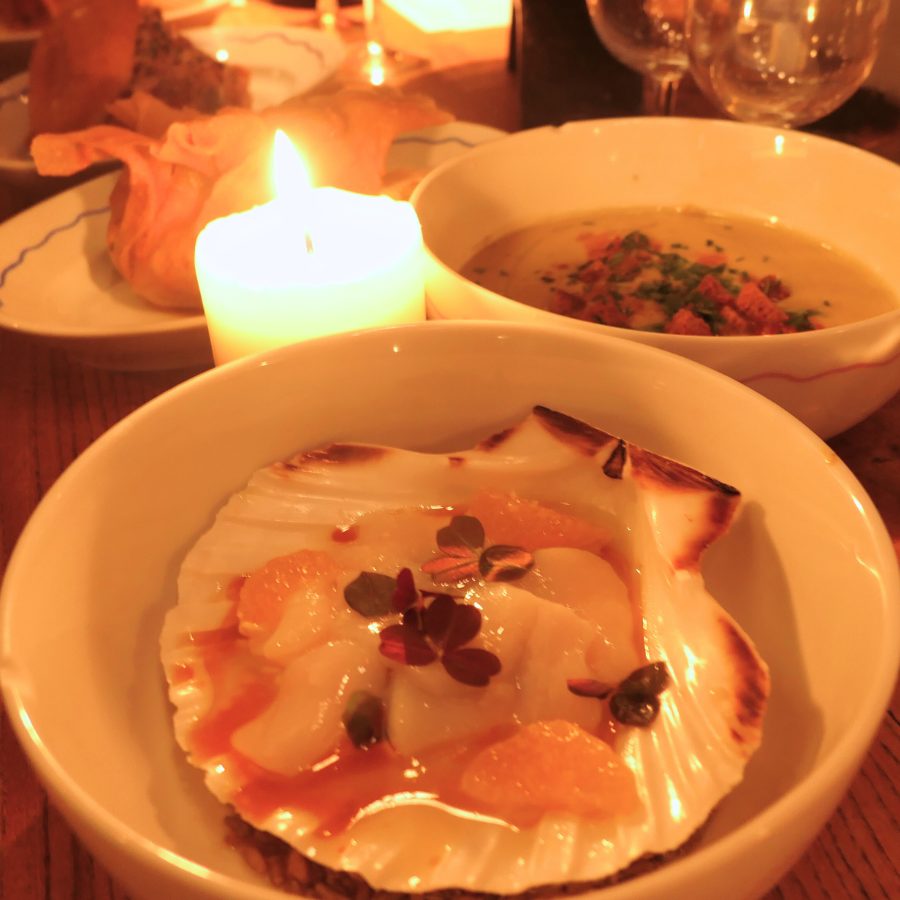
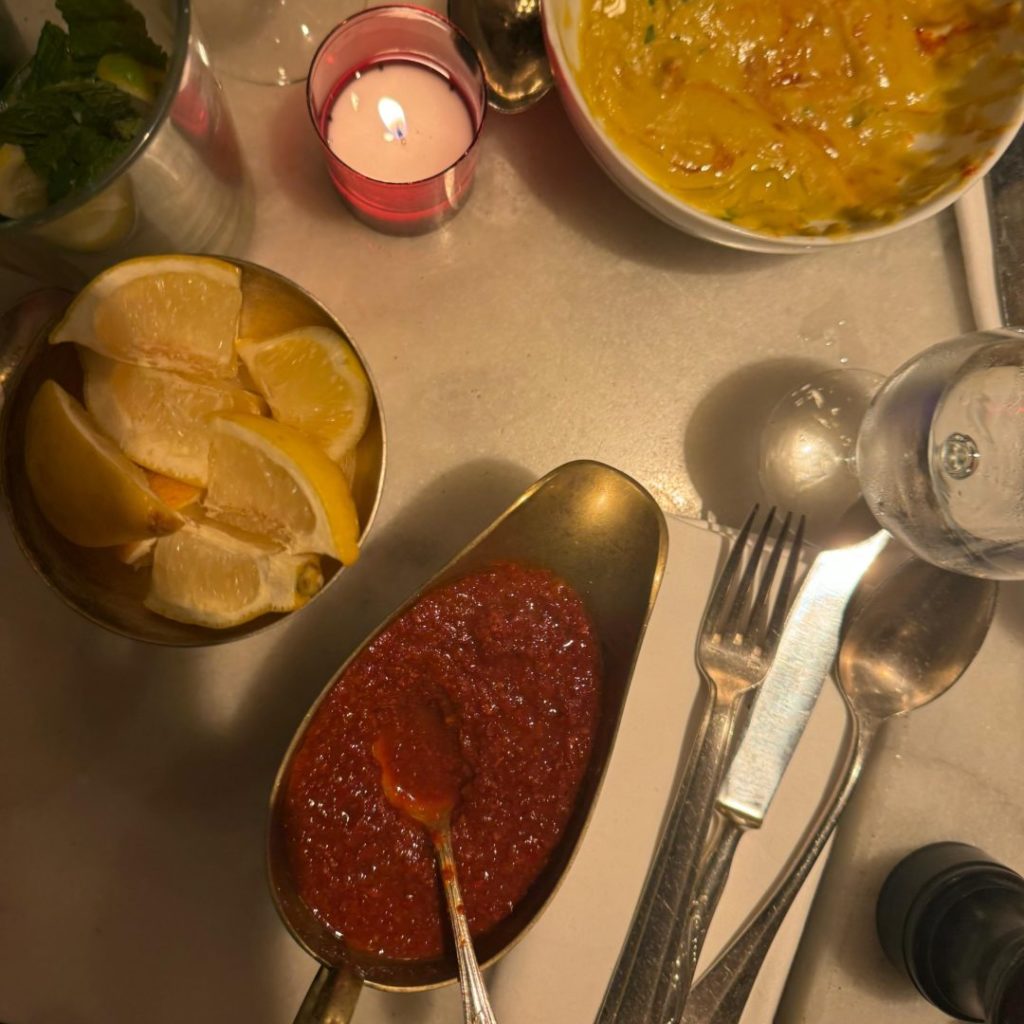
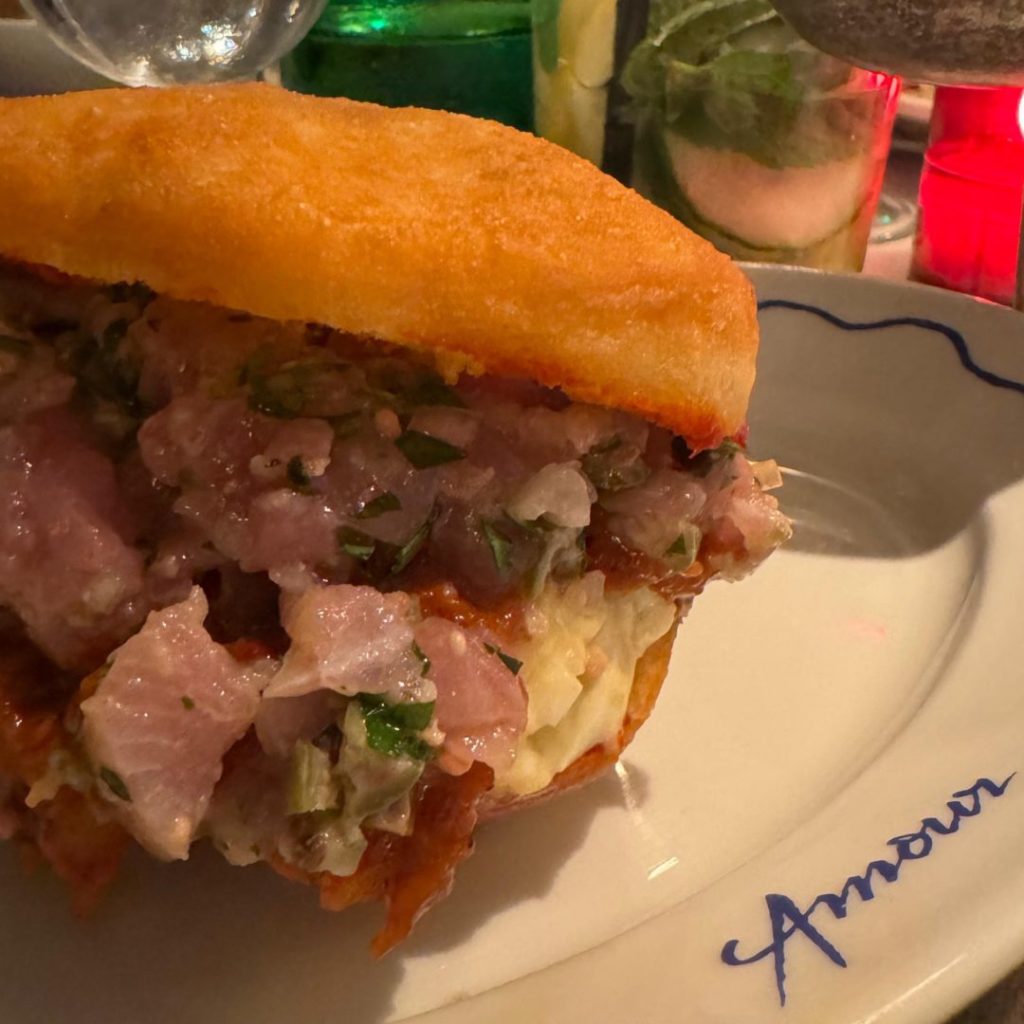
Bios
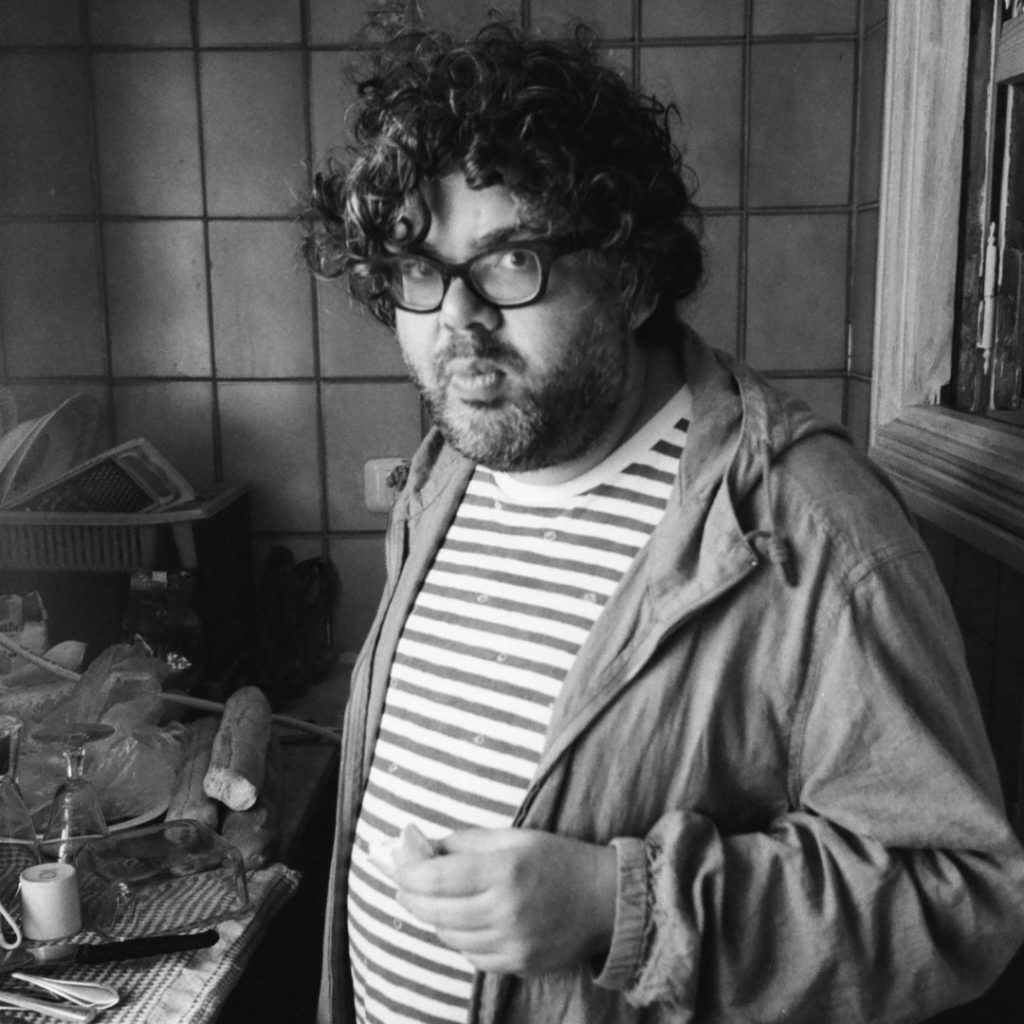
Rafram Chaddad creates performances, public space interventions, installations, videos, sculptures… Occasionally taking over a sandy desert, an abandoned synagogue, a hammam or a fish market, drawing on everyday life and willingly mobilizing ordinary materials and vernacular know-how, the work of Rafram Chaddad (b. 1976, Djerba, Tunisia) defies categorization and invites us to deconstruct preconceived ideas about identity, exile, migration and the very concept of “culture”. Food and cooking play a privileged role in his work, in that they propose a shared experience close to everyone, and pulverize the idea of borders and attempts to define a stable, fixed identity. Rafram Chaddad has produced dozens of short films and installations, which have been exhibited at the Mucem in Marseille, the Forum Maximilien in Munich, B7L9 in Tunis, and more recently at the Art Explora festival (Marseille) and the first Malta Biennial. He was artist-in-residence at the Cité internationale des Arts (Paris) in 2024.
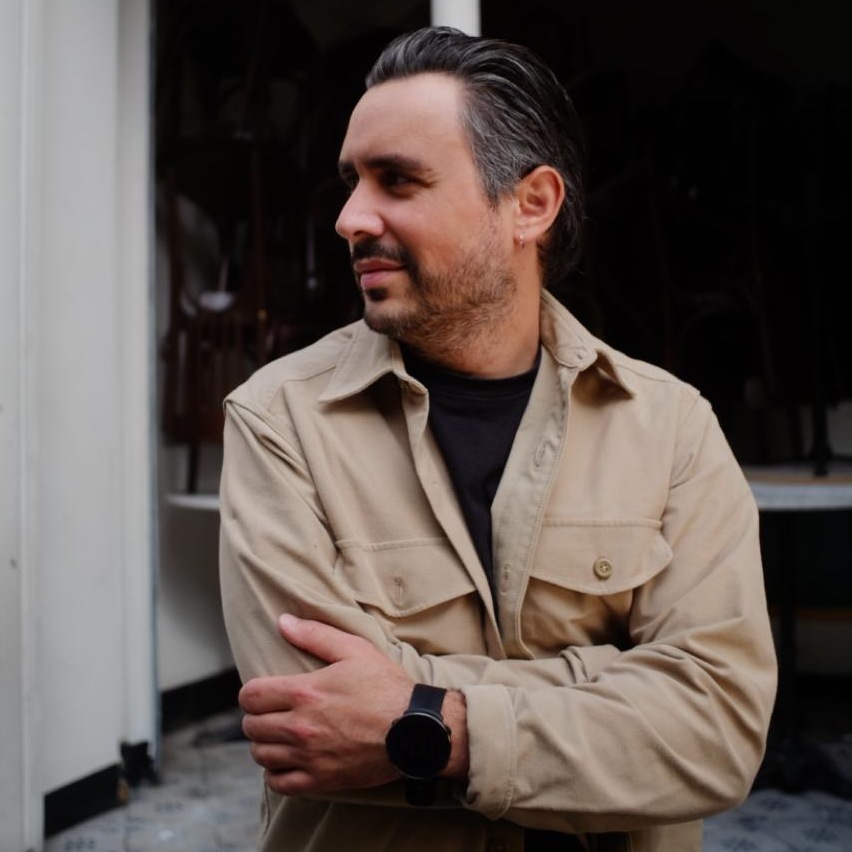
La cuisine de Johann Barichasse est indissociable de son héritage familial. Né de parents d’origine juive marocaine et algérienne, sa culture est aussi, évidemment, française. Petit, à table ou en cuisine, il se souvient de la savoureuse modestie des plats préparés avec amour. Des moments qui permettaient, aussi, de rendre hommage aux origines de ces familles éloignées de leurs terres natales. Car l’histoire familiale de Johann Barichasse rejoint aussi la grande Histoire, celle de l’exil, de la nostalgie d’un ailleurs qu’on n’a jamais vraiment connu, d’un passé insaisissable, mystérieux. De cet héritage, il a conservé la générosité et la joie. Et aussi un besoin de réunir toutes les parties qui le composent. C’est au contact des produits comme épicier chez Terroirs d’Avenir qu’il décide de redessiner sa trajectoire. Formation express chez Cuisine Mode d’Emploi, stage chez Mokonuts puis, très rapidement, second de Manon Fleury au Mermoz, une expérience décisive qui consolidera son envie de cuisiner. La suite ? Ses casse-dalles à tomber chez Penny Lane – récompensés par Le Fooding –, et une résidence de huit mois chez Mokoloco, rien que ça. Désormais établi à Marseille, il a pris les rênes de la cave à manger Les Rigoles cet été, après une résidence aux Grandes Tables (Théâtre de la Criée) en 2023. Sa cuisine est gourmande, épicée, parfumée, mijotée. Mais elle est aussi à son image : judéo-arabe, française, marseillaise, parisienne… Et toujours homogène. Entre les lignes, on devine le trait d’union qui permet de rassembler toutes les parties qui le composent.
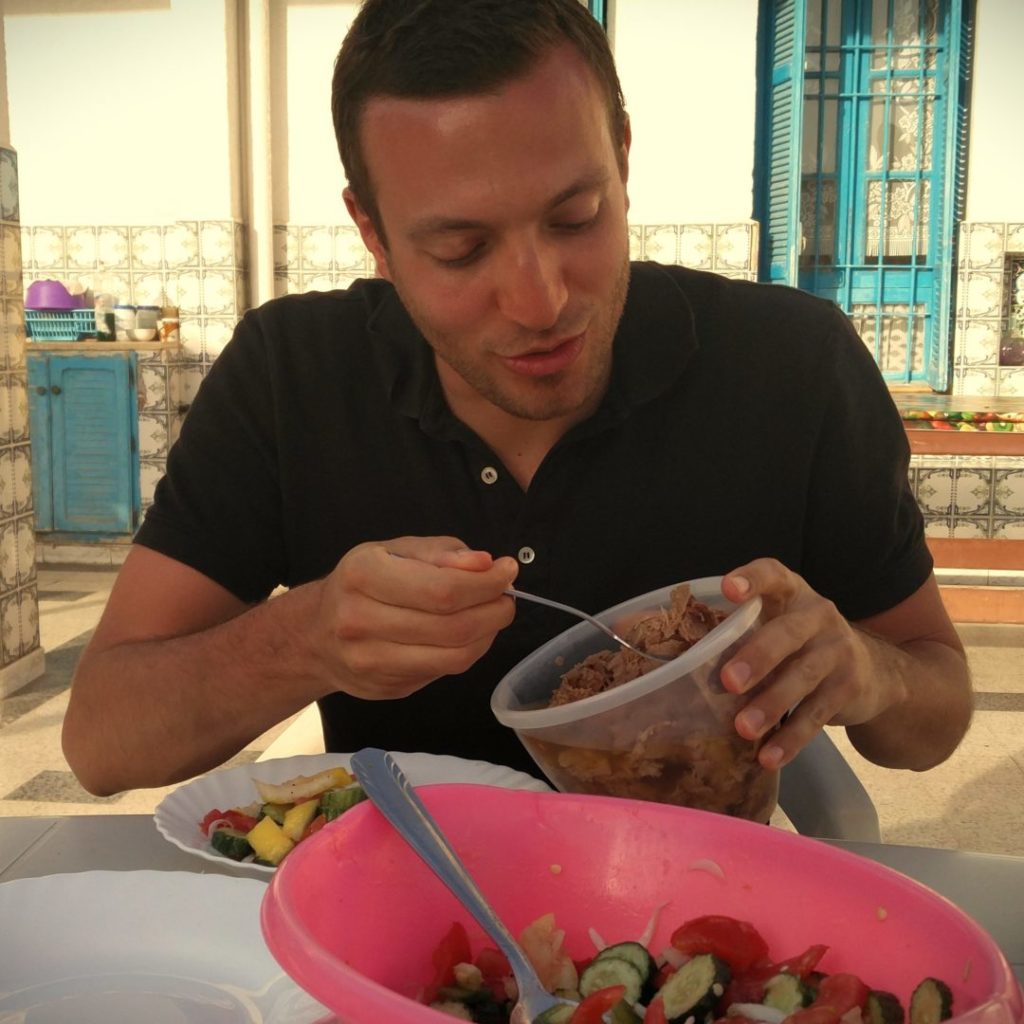
Joseph Hirsch is deputy manager of the auditorium at the Musée d’art et d’histoire du Judaïsme (mahJ) in Paris. Along with Claire Marynower, he has coordinated the symposium “Jews of the Arab world, why did they leave?” (June 28-29, 2022, at the mahJ.
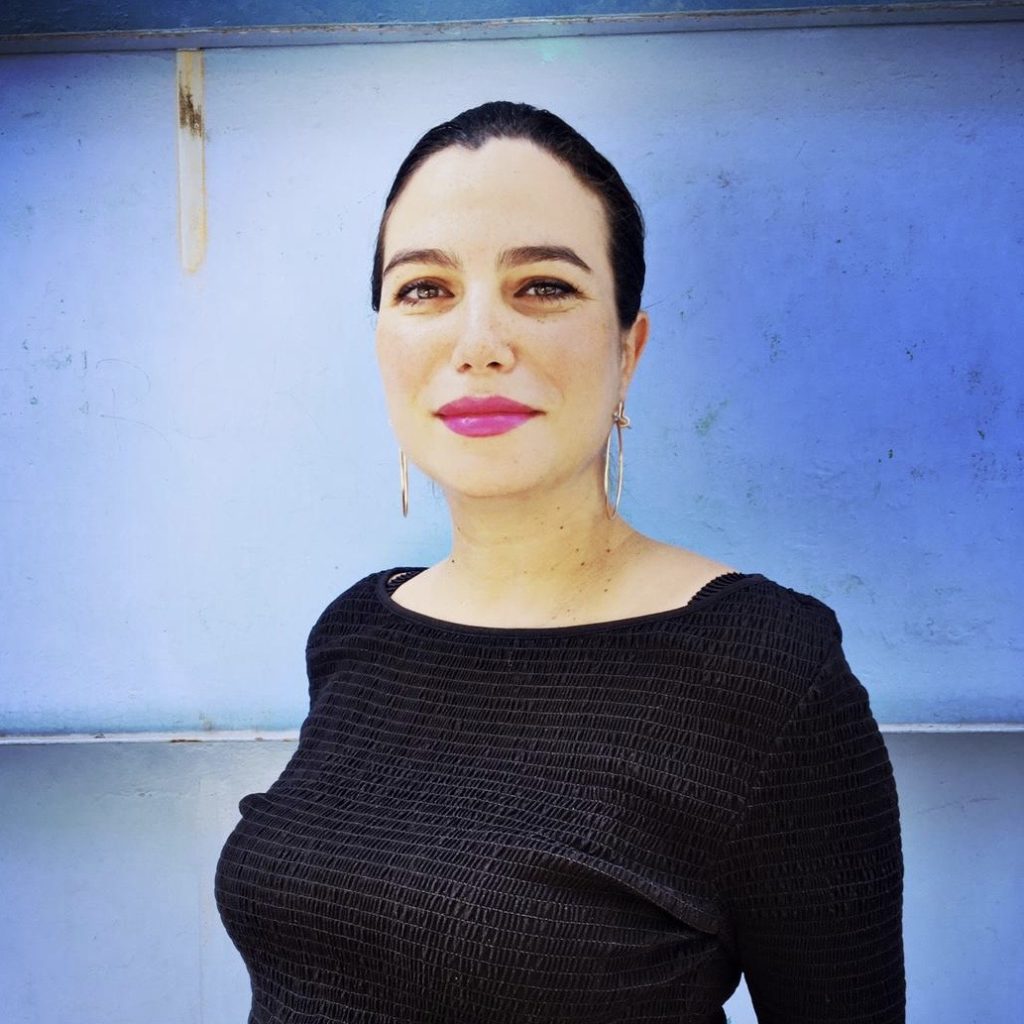
Victoria Jonathan (b. Paris, 1985) is curator and co-founder of Doors 门艺, a curation, production and artistic consultancy platform based in Paris and Beijing. She lived in China for several years, after studying philosophy and sinology at Columbia University and La Sorbonne, collaborating with the New York sound art collective Soundwalk and making documentaries on Beijing avant-gardes (France Culture). She co-directed the Jimei x Arles festival (created in China by Les Rencontres d’Arles), where she founded the first prize for Chinese women photographers. She has curated several exhibitions in France and abroad. In her curatorial practice, she is particularly interested in issues relating to history and collective memory, the representation of landscape in the age of ecological urgency, and the links between vernacular forms and contemporary creation, with a transnational and transdisciplinary approach nourished by her knowledge of the art scenes in Asia, Europe and North Africa. In October 2024, she is guest editor of the French edition of the Chinese contemporary art magazine LEAP on the occasion of the exhibition “目 Chine. A new generation of artists at the Centre Pompidou” in Paris (October 9, 2024-February 3, 2025).
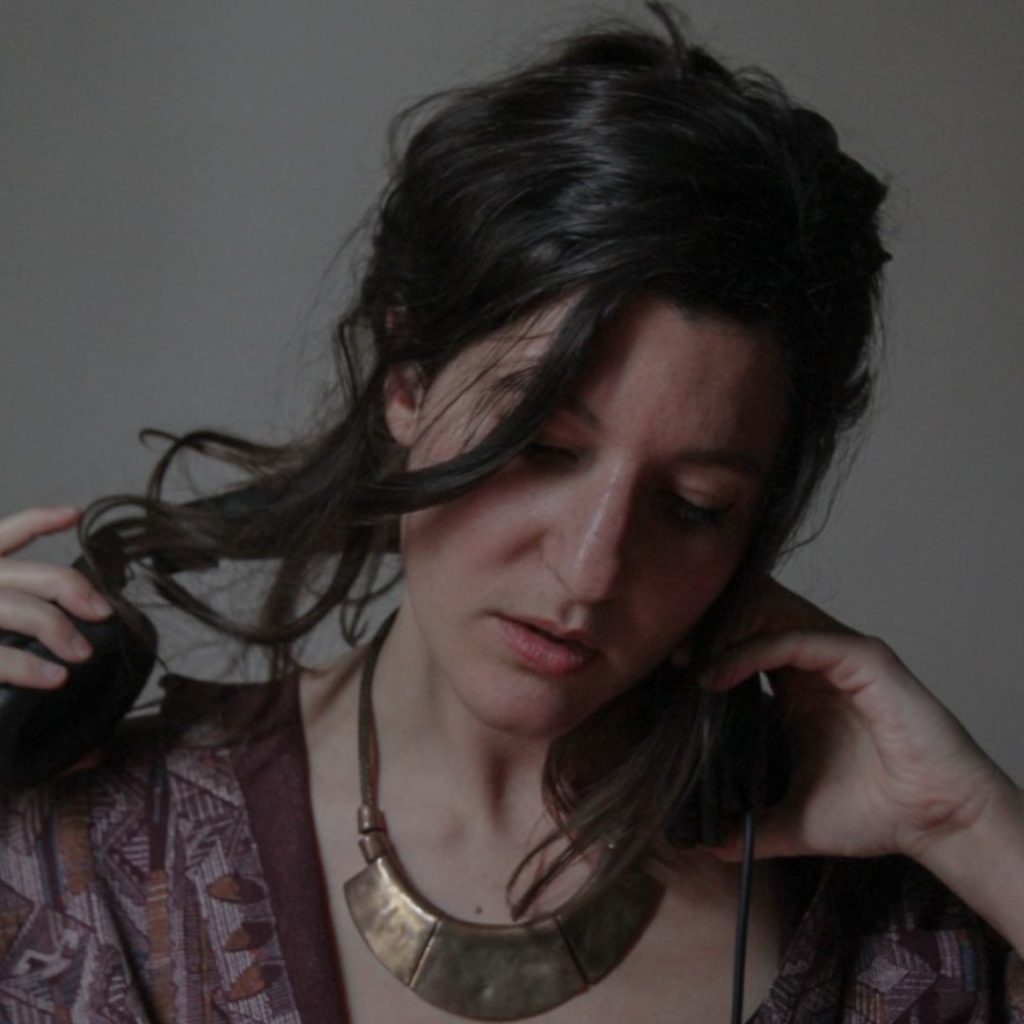
Mediterranean DJ and producer Sharouh (Sarah Perez) invites electro to blend with music from the Maghreb, the Middle East, Greece and Turkey. In a process of reappropriation and rewriting, she is interested in forms of musical syncretism – Judeo-Arabic, Amazigh, Mizrahi… – as well as the role of women in this heritage. Her remixes of the great female singers of North Africa sometimes give way to acid and punk touches in vibrant sets where samples of feminist speeches rub shoulders with oriental percussion and analog synths. Sharouh performs in France (New Morning, Bellevilloise, Badaboum, Petit Bain, Institut du Monde Arabe, Palais de la Porte Dorée-Musée national de l’histoire de l’immigration, Tunis sur Seine, Dock des Suds Marseille) and around the world (Beirut Electro Parade, Radio Primavera Sound in Barcelona, Kabana in Marrakech, Institut français in Tunis and Khartoum). Sharouh is also co-founder of We Make Noise, an association that encourages women to get involved in music production through training workshops. Her EP just released in September, Ya Hasra (Akuphone), resurrects four nuggets of Tunisian Jewish music, sung by legends Habiba Msika, Louisa Tounsia, Raoul Journo and El Kahlaoui Tounsi, accompanied by Sharouh’s unique reinterpretations.
Website + Soundcloud + Instagram

